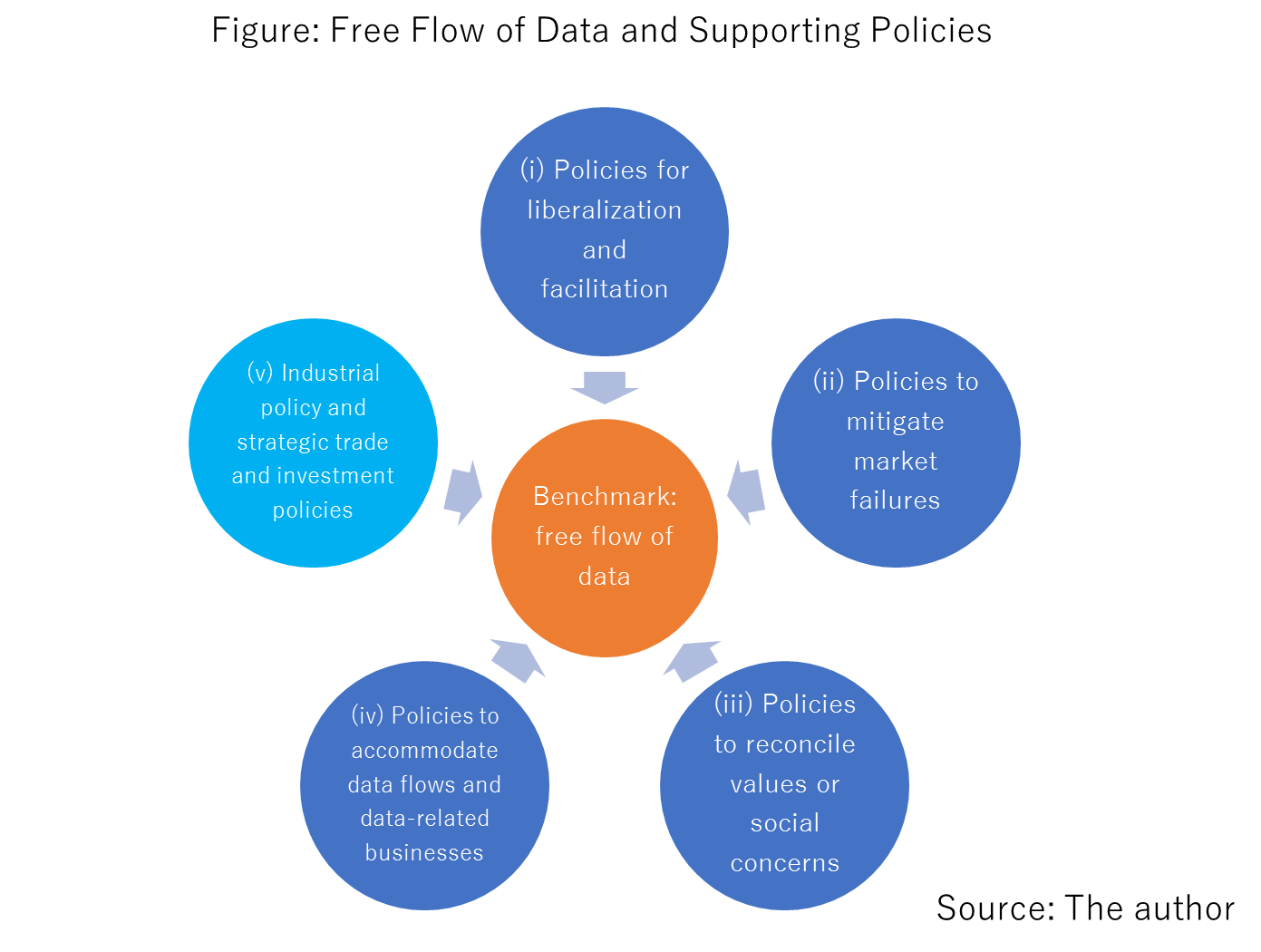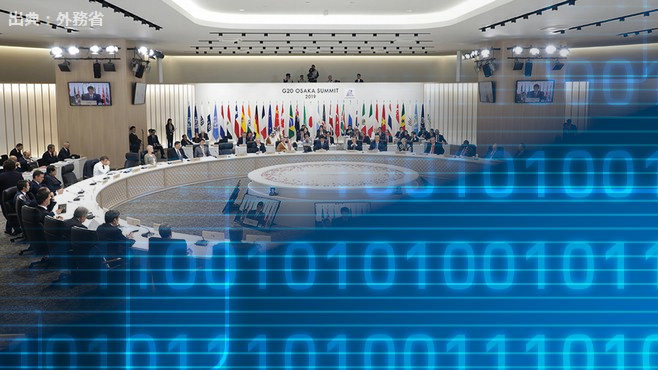- Digital technology, particularly communication technology such as the Internet and smartphones, has rapidly penetrated into people's life even in newly developed and developing countries. Smooth data flow is essential for consumers and network users to enjoy the benefits.
- However, policymaking on data flow and data-related businesses has so far been confused and fragmented across countries. It is important to establish an organized approach for related policies to catch up with the market-based introduction of new technology.
- T20 Japan 2019 proposes a conceptual framework in which economic benefits from the free flow of data are placed at the starting point, and policies necessary to address various economic and social concerns are classified into five categories as policy guidelines.
However, the policies designed to govern the flow of data and data-related businesses are now in disastrous confusion and are also fragmented across countries. The United States, the European Union, China and other countries have not so far shown any signs of policy convergence or harmonization. Once policy formulation starts from the supreme value of privacy protection or cybersecurity, policies tend to be too cautious about data flows and possibly disregard economic efficiency. Policies on large platformers such as GAFA (Google, Amazon.com, Facebook, and Apple Inc.) often target multiple policy objectives such as privacy protection, competition policy, taxation, and even protectionism at the same time, making any logical justification of policies difficult.
One fundamental issue is that the economics of data have not yet been well established. This is a major issue that needs to be addressed by economists right now, though a bit more time may be needed to settle various debates. However, the demand for policies will not wait for our slow response. Prompted by such a sense of emergency, the Think 20 (T20) team on trade, investment, and globalization this year proposed a simple logical framework to provide an organized approach for necessary policies on the flow of data and data-related businesses by drawing an analogy from trade in goods (Chen, et al., 2019).
Here we will set the free flow of data as a logical benchmark. As in the standard microeconomic model, economic benefits are based on the welfare of consumers or network users. A series of policies is then considered in order to address various socioeconomic concerns possibly associated with the free flow of data.
Policies that support the free flow of data are logically classified into the following five categories (see figure below). The first category is a series of policies for further liberalization and facilitation, which include non-discrimination for digital content, customs duties on electronic transmissions, customs duties on parcels, and electronic authentication and signatures.

The second consists of policies to address economic concerns by counterbalancing market failure. Market failure tends to occur when imperfect competition, economies of scale, increasing returns, public goods, or incomplete information exist, and policies that cancel out market distortions due to market failure may be justified. Competition policy, consumer protection, and intellectual property protection fall into this category.
The third comprises policies that reconcile non-economic values or social concerns with economic efficiency. There certainly exist important values in our judgment other than economic efficiency, and we must try to reconcile such values with a minimal loss of economic efficiency. Privacy protection, cybersecurity, and other general exceptions for health and culture, for example, should be addressed by policies in this category.
The fourth includes a series of policies dealing with data-related businesses. Those businesses are new, and some special attention must be paid in order to place them in a proper regulatory framework without losing economic dynamism. Most of the related policies are domestic policies but they have strong international implications. These policies include taxation, regulation on e-payments, fintech and other industries, artificial intelligence, information disclosure by firms and statistics, and due process in government access to privacy or industry data.
The fifth is industrial policy and strategic trade and investment policies. It is understandable that governments may want to strengthen their own industries. However, we have to note that such policies are often implemented without careful cost-benefit analysis. Inefficient government intervention or protectionism must be avoided. We also need some international norm with proper listing and notification of such policies in the future.
G20 Japan 2019 adopted a concept of "data free flow with trust (DFFT)" for the coming rule-making effort on data flows. It is meaningful to set the free flow of data as a logical starting point, if not as a legal principle, in order to anchor the benefits of consumers and network users. Then we should write down what would constitute enough "trust" for us to enjoy data flows with comfort. Our conceptual framework will provide a list of "must dos."
The formulation of pertinent policies has been delayed particularly in many newly developed and developing countries while economic forces have already pushed the application of new technologies in various fields. In order to enjoy huge benefits from this digital wave, these countries must promptly construct a system of data-related policies. It is important to place the benefits of consumers and network users at the center and try to avoid inefficient protection of domestic players, while carefully monitoring intense debates among big players on difficult issues such as competition policy, privacy protection, and taxation. It is also important to nurture policy implementation capabilities. Cooperating internationally in capacity building and learning best practices from each other will be as important as ever.
References
Chen, L., et al. (2019) "The Digital Economy for Economic Development: Free Flow of Data and Supporting Policies," Policy Brief under T120 Japan Task Force 8: Trade, Investment and Globalization (https://t20japan.org/policy-brief-digital-economy-economic-development/).
Fukunari Kimura is Professor, Faculty of Economics, Keio University and Chief Economist, Economic Research Institute for ASEAN and East Asia (ERIA)
The views expressed in this piece are the author's own and should not be attributed to The Association of Japanese Institutes of Strategic Studies.



